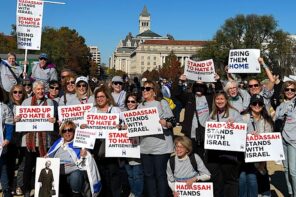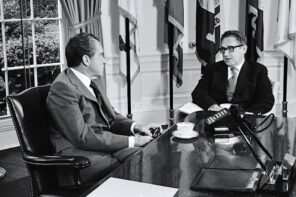Yesterday the Interfaith Alliance and Human Rights First announced an initiative to counter anti-Muslim bigotry called Faith Shared: Uniting in Prayer and Understanding. From its website:
This project will create opportunities across the United States for faith communities to strengthen ties with each other. We will counter the misperception, including in the Arab and Muslim worlds, that the United States is a nation defined by the widely covered images of the marginal few who would burn a Qur’an, rather than by a proud and longstanding tradition of religious freedom, tolerance and pluralism. In communities across the United States, this project will not only serve as a model for tolerance and cooperation and promote local faith leaders as champions of such, but it will also create a concrete opportunity to build and strengthen working ties between faith communities moving forward.
Faith Shared’s big event will be on June 26, when houses of worship across the country, including the National Cathedral, will host clergy reading from sacred texts of different religions.
In the appeal from a federal court’s preliminary injunction against implementation of the voter-approved constitutional amendment banning shari’ah in Oklahoma, a coalition of religious and civil liberties groups argued in an amicus brief that the measure is unconstitutional because it singles out Muslims for discrimination.
In a statement, the Rev. Barry Lynn, executive director of Americans United for the Separation of Church and State, which joined in the brief, said:
The amendment singles out one faith tradition for government hostility. That violates our fundamental constitutional requirement that government remain neutral on religion. Oklahoma doesn’t need a special amendment to protect it from government-imposed Islamic law. The First Amendment already does that.
Other groups joining the brief were the American Jewish Committee, the Anti-Defamation League, the Baptist Joint Committee for Religious Liberty, the Center for Islamic Pluralism, the Interfaith Alliance, and the Union for Reform Judaism.




